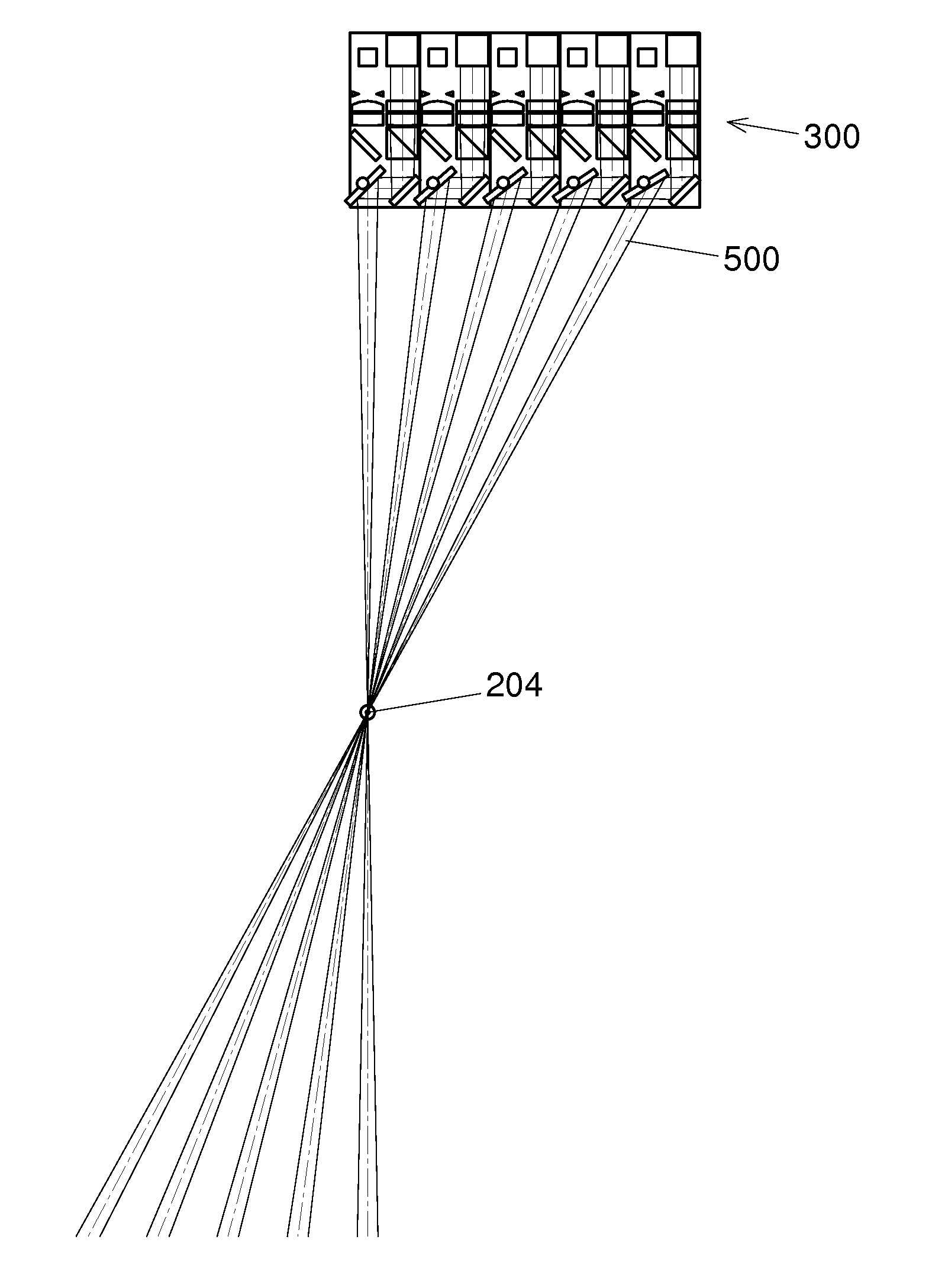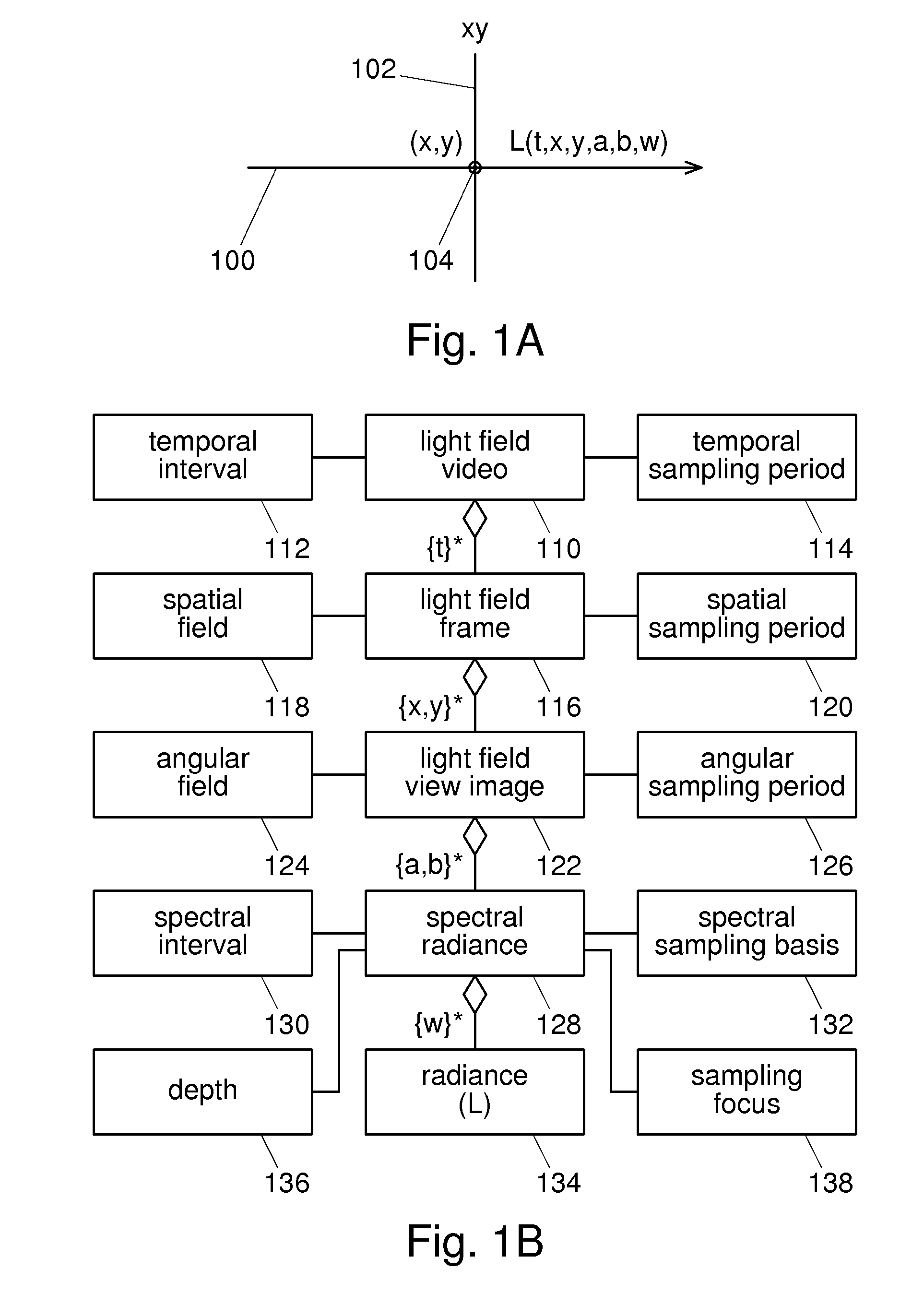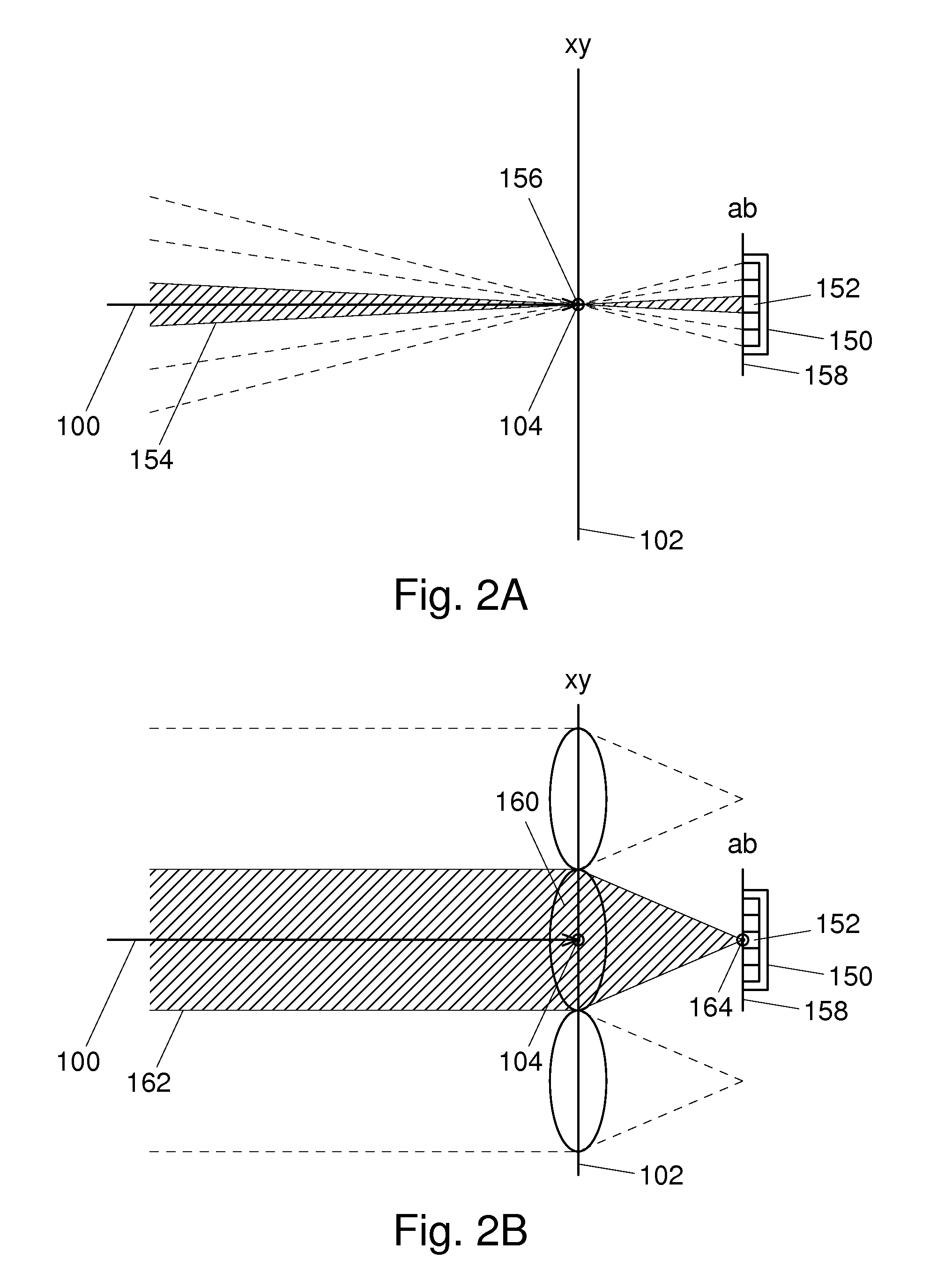Scanning light field camera and display
a light field camera and light field technology, applied in the field of high-fidelity light field displays, cameras, two-way displays, can solve the problems of unsuitable display applications that demand realism, unsuitable for display applications that require realism, and limited size and resolution of practical holographic displays, and achieve the effect of rapid scan ra
- Summary
- Abstract
- Description
- Claims
- Application Information
AI Technical Summary
Benefits of technology
Problems solved by technology
Method used
Image
Examples
Embodiment Construction
Light Field Parameterization
[0286]FIG. 1A shows a representative ray 100 of a continuous 6D light field, traversing the boundary 102 of the volume of interest at an intersection point104. The radiance (L) of the ray 100 is a function of time (t), boundary position (via coordinates x and y), ray direction (via angles a and b), and wavelength (w).
[0287]While the radiance of the ray is strictly only defined at the boundary, i.e. at the intersection point 104, additional knowledge of the transparency of the two volumes separated by the boundary can allow the ray's radiance to be extrapolated in either direction.
[0288]Radiance is a measure of radiant power per unit solid angle per unit area (measured in watts per steradian per square meter, W / sr / m^2). For an infinitesimal ray of a continuous light field, the radiance is defined for an infinitesimal solid angle and area.
[0289]For eventual display to a human, the radiance is usually sampled sparsely using either a triplet of basis function...
PUM
 Login to View More
Login to View More Abstract
Description
Claims
Application Information
 Login to View More
Login to View More - R&D
- Intellectual Property
- Life Sciences
- Materials
- Tech Scout
- Unparalleled Data Quality
- Higher Quality Content
- 60% Fewer Hallucinations
Browse by: Latest US Patents, China's latest patents, Technical Efficacy Thesaurus, Application Domain, Technology Topic, Popular Technical Reports.
© 2025 PatSnap. All rights reserved.Legal|Privacy policy|Modern Slavery Act Transparency Statement|Sitemap|About US| Contact US: help@patsnap.com



